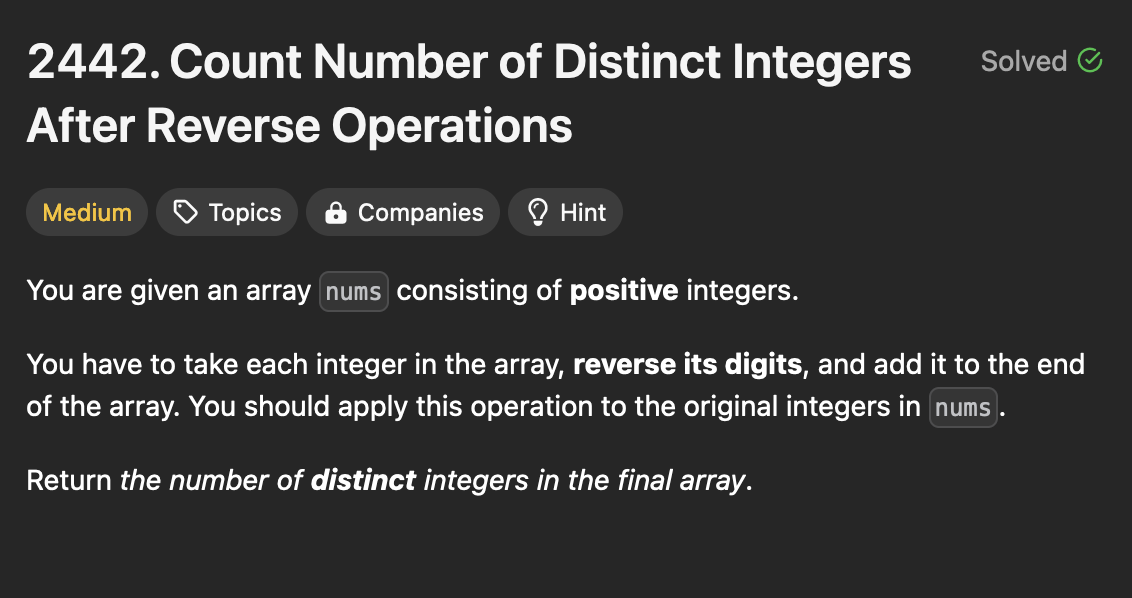In this article I’ll solve Count Number of Distinct Integers After Reverse Operations problem in Leetcode. I’ll use Go , C++ , Python to solve this question.
Code Samples (C++ , Go , Python)
// Function for reverse digits in array
func reverse_digits(num int) int {
reversed := 0
for num > 0 {
reversed = reversed*10 + num%10
num /= 10
}
return reversed
}
func countDistinctIntegers(nums []int) int {
// hashmap for save num in nums and reversed versions of these numbers
distinct := make(map[int]bool)
// If reversed number is equal a number in nums it won't affect distinct hashmap
for _, num := range nums {
distinct[num] = true
distinct[reverse_digits(num)] = true
}
// Return hashmap length
return len(distinct)
}
class Solution:
def reverse_digits(self, num: int) -> int:
# Function to reverse digits in a number
reversed_num = 0
while num > 0:
reversed_num = reversed_num * 10 + num % 10
num //= 10
return reversed_num
def countDistinctIntegers(self, nums: List[int]) -> int:
# Function to count distinct integers and their reversed versions in a list
distinct = set() # Create a set to store distinct numbers
for num in nums:
distinct.add(num) # Add the original number to the set
distinct.add(self.reverse_digits(num)) # Add the reversed version to the set
return len(distinct) # Return the length of the set, which represents the count of distinct integersclass Solution {
public:
int reverseDigits(int num) {
int reversedNum = 0;
while (num > 0) {
reversedNum = reversedNum * 10 + num % 10;
num /= 10;
}
return reversedNum;
}
int countDistinctIntegers(vector<int>& nums) {
unordered_set<int> distinct; // Create an unordered_set to store distinct numbers
for (int num : nums) {
distinct.insert(num); // Add the original number to the set
distinct.insert(reverseDigits(num)); // Add the reversed version to the set
}
return distinct.size(); // Return the size of the set, which represents the count of distinct integers
}
};Algorithm Sample for This Problem
- Create an empty hashmap to store unique integers.
- Iterate through each number in the input slice.
- For each number:
- Reverse its digits.
- Set both the original number and its reversed version as keys in the hashmap with a boolean value set to true.
- Return the count of unique keys in the hashmap.
